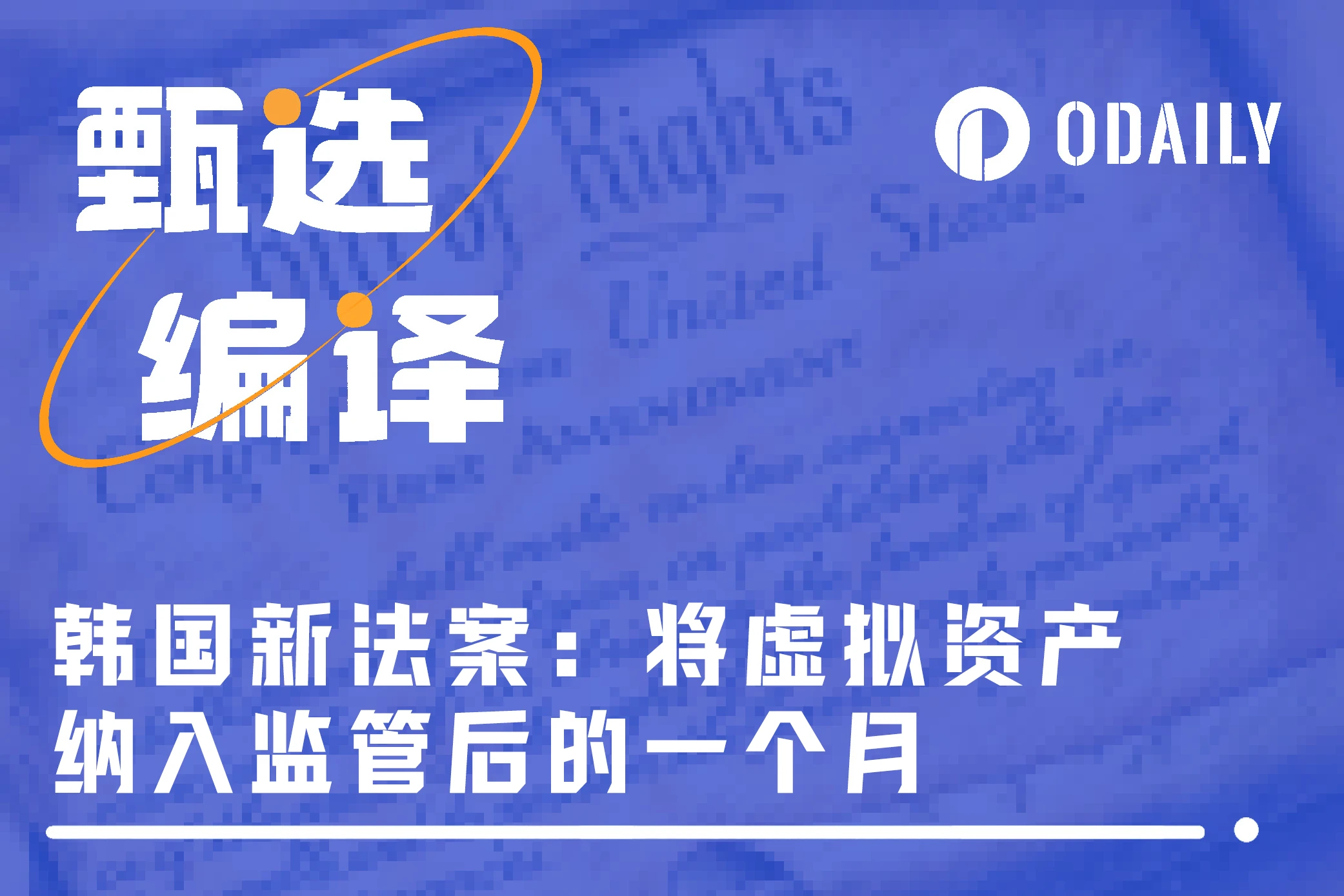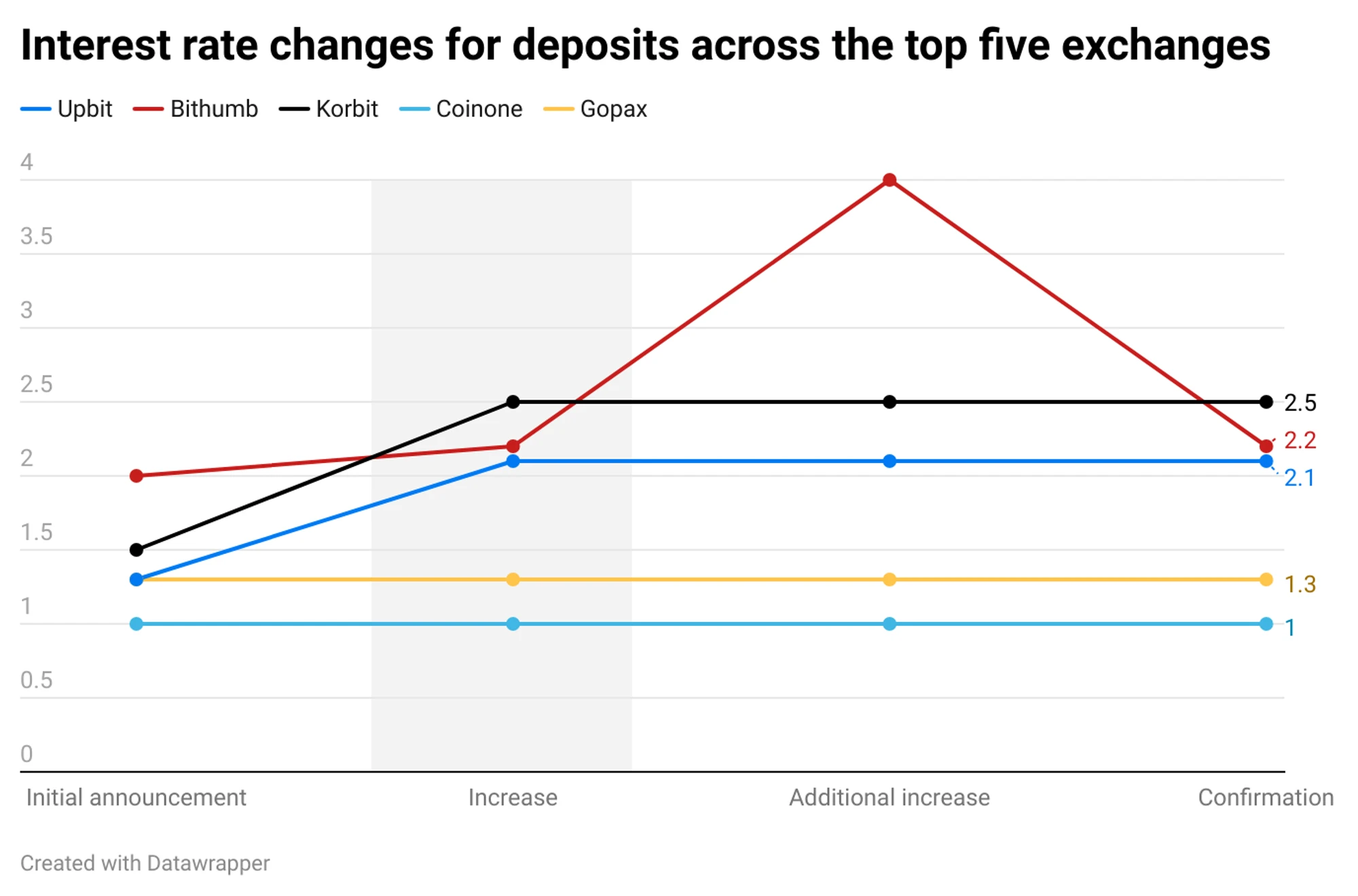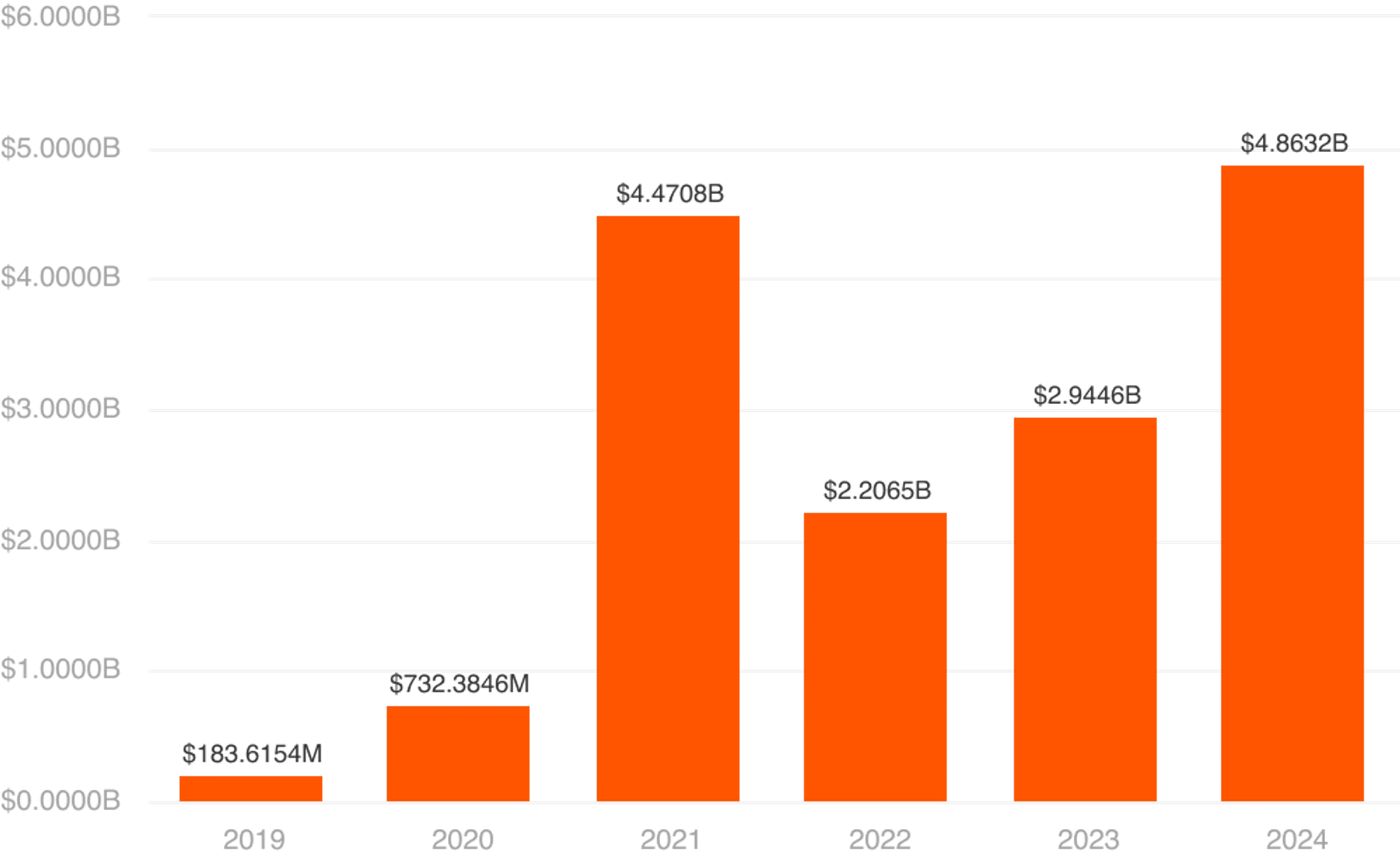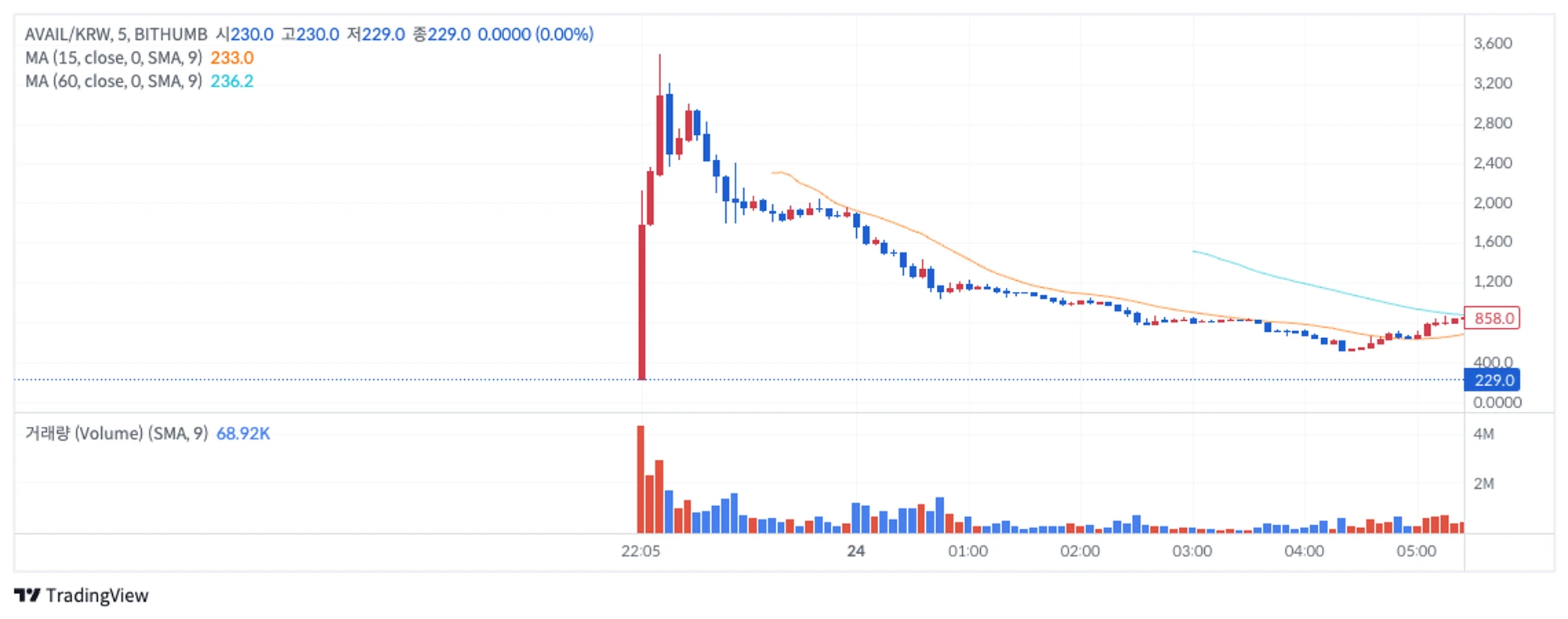Original article from crypto research company Tiger Research
Compiled by Nan Zhi ( @Assassin_Malvo )

New Cryptocurrency Regulations in South Korea
Since the first ban in 2018, the South Korean governments approach to regulating virtual assets has changed a lot. Eventually, South Korea incorporated virtual assets into the current regulatory framework. The key moment of this transformation was the entry into force of the Virtual Asset User Protection Act on July 19, 2024 , which emphasized the high importance attached to investor protection. (Odaily Note: South Korea banned any form of ICO in 2017 and considered closing crypto exchanges in 2018.)
This regulatory shift aims to address persistent problems of arbitrage, fraud and illegal solicitation, which are not adequately addressed by the existing anti-money laundering-focused framework, with incidents involving illegal kickbacks exposing significant regulatory gaps.
Specific Terms
In response, the Virtual Asset User Protection Law aims to protect domestic virtual asset investors and promote market integrity, and includes four key provisions:
Clarified the scope of crypto assets : defining crypto assets as “electronic representations of economic value” and excluding certain assets (such as NFTs and CBDCs) from regulation;
Mandatory payment of interest on customer deposits : cryptocurrency operators are required to pay customers interest on their deposits in Korean won;
Requiring insurance and contingency reserves : The law requires insurance and contingency reserves to be accumulated for accidents, such as hacker attacks and system failures;
Strengthening supervision of unfair trading practices : Establishing specific penalties for insider trading and market manipulation, prohibiting the suspension of deposits and withdrawals without justifiable reasons, and requiring cryptocurrency operators to establish a system to monitor and report suspicious transactions.
The measures are intended to increase transparency and stability in the cryptocurrency market and protect users. However, some ambiguities remain, so it is important to look at how the market has evolved in the month since the law was enacted .
One month after the new regulations came into effect
Among the four main points of the latest bill, the ones that have the greatest impact on the Korean cryptocurrency market are mandatory payment of interest and strengthening supervision against unfair trading practices.
High-interest deposit collection and internal circulation
Mandatory interest payments force cryptocurrency operators to distribute interest on customer deposits to investors, which was previously their source of income . Paying interest on stablecoin deposits is common, but paying interest on fiat currency deposits is very rare worldwide, mainly due to the peculiarities of deposits and withdrawals in South Korea.
In South Korea, according to the Specific Financial Information Act, trading in Korean won on exchanges requires opening a real-name account at a bank. Unlike other countries that use methods including KYC authentication, South Korea requires direct linking of real-name accounts as the only way to trade cryptocurrencies on centralized exchanges , making the payment of deposit interest inevitable.
Shortly after the implementation of the Virtual Asset User Protection Act on July 19 and 20, the five major exchanges in South Korea launched a fierce interest rate competition. Starting from the initially announced 1% interest rate, the interest rate rose to 2% within a day, and Bithumb recently raised the interest rate to 4% . (Odaily Note: As of August 20, the yield on South Koreas 10-year government bonds was 2.972%, and the two-year bond was 3.048%)
This competition may stem from past experience with real-name accounts. The market leader at the time, Bithumb, chose Nonghyup Bank, a traditional bank where it was relatively difficult to open a non-face-to-face account. Upbit, on the other hand, chose KBank, which allows for quick non-face-to-face account opening, leading to a change in market share. For Bithumb, this aggressive move by setting a high interest rate represents its strategic intention to regain its leading position .
Currently, Koreas base interest rate is 3.50%, the average interest rate for ordinary bank deposit accounts is 2.07%, and the average interest rate for securities companies CMA accounts is 3.14%. In contrast, exchanges are competing quite fiercely with higher interest rates.
 This competition is possible because the financial burden has been shifted to the banks associated with the exchange rather than the exchange itself . As of last year, Upbit had $2.9 billion in customer deposits, and at the 0.1% interest rate offered by KBank, interest income alone is estimated to be around $29.2 million.
This competition is possible because the financial burden has been shifted to the banks associated with the exchange rather than the exchange itself . As of last year, Upbit had $2.9 billion in customer deposits, and at the 0.1% interest rate offered by KBank, interest income alone is estimated to be around $29.2 million.
However, with the implementation of the new law, KBank’s cost burden will increase significantly as exchanges raise their interest rates. If Upbit’s interest rate is raised to 2%, its interest expense will increase nearly twenty times. This structure enables exchanges to provide significant benefits to customers without incurring significant costs.
Upbit’s revenue in 2023 was $890 million, and while interest income is significant, it is a smaller portion of total revenue, so the exchange is expected to attract and retain customers using this strategy .

Kimchi Premium and Market Manipulation
The following figure shows the trend of some tokens before and after they were listed on Korean exchanges. In recent years, the listing effect of Upbit has been very obvious.
While cryptocurrencies typically experience a “Kimchi premium” after listing on Korean exchanges, AVAIL has seen a very extreme price gap. (Odaily Note: The new law took effect on the 19th, and AVAIL was listed on Bithumb on the 23rd.)
The maximum price difference of AVAIL between Bithumb and Bybit reached 1,335%. A user bought a large amount of AVAIL from overseas investors who could not access Korean exchanges through the X platform, and then sold it in bulk on Bithumb for huge profits. (Odaily Note: Based on 3200 won, the highest price on Bithumb was $2.4, and the highest price on other exchanges was about $0.24.)

Source: Subscan
Analysis of the transactions related to the mysterious user showed that he transferred $1.2 million AVAIL through 113 addresses and recovered $2.49 million AVAIL, with an average return of 2.07 times per user. The mysterious user earned approximately $760,000 in revenue through arbitrage fees.
The incident highlights several key issues related to the Virtual Asset User Protection Act, including price manipulation, market impact caused by large-scale sell-offs, and the responsibility of exchanges to monitor abnormal transactions. In addition, it also raises legal issues regarding the sale of tokens on behalf of foreigners who do not have access to local exchanges, which also poses potential money laundering risks.










